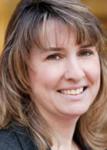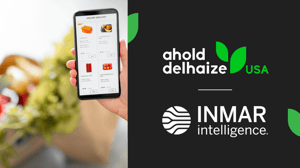2012 Power 50: No. 27 Paul Bulcke
Nestlé underscored its commitment to the infant nutrition business in April with an agreement to acquire Pfizer Nutrition for $11.9 billion.
July 18, 2012
 Nestlé underscored its commitment to the infant nutrition business in April with an agreement to acquire Pfizer Nutrition for $11.9 billion.
Nestlé underscored its commitment to the infant nutrition business in April with an agreement to acquire Pfizer Nutrition for $11.9 billion.
The purchase will complement Nestle’s infant nutrition business because of Pfizer’s strong product portfolio, and vast geographic presence — 85% of its sales are in emerging markets, said Chief Executive Officer Paul Bulcke.
“Pfizer Nutrition is an excellent strategic fit and this acquisition underlines our commitment to be the world’s leading nutrition, health and wellness company,” Bulcke said in a statement.
The acquisition, which is subject to regulatory approval, will add brands like S-26 Gold, SMA and Promil to Nestlé’s existing portfolio, which includes Nan, Gerber, Lactogen, Nestogen and Cerelac infant cereal.
“The combined entities will enable us to deepen our engagement with consumers, offering them a wider choice of nutritious food to ensure their children make a healthy start to a healthy life,” said Bulcke.
The agreement comes as Nestlé has enhanced its health and wellness positioning in other ways. The Switzerland-based company has made it clear that it seeks to be an industry pioneer by connecting food and pharmacy. To do so, it is developing products to prevent and treat health conditions such as diabetes, obesity, cardiovascular disease and Alzheimer’s disease.
This year, it launched Nestlé Health Science, a fully-owned subsidiary of Nestlé S.A. that develops science-based nutritional solutions to deliver health care for medical conditions, and the Nestlé Institute of Health Sciences, a biomedical research institute based on the campus of the Swiss Federal Institute of Technology and part of Nestlé’s global research and development network.
Nestlé Health Science has already made several investments, including the acquisition of Prometheus Laboratories, a diagnostics and therapeutic gastrointestinal and oncology business.
“The creation of Nestlé Health Science and the Nestlé Institute of Health Sciences is the best way to focus our attention and organize our unique capabilities and competencies to seize this promising business opportunity,” said Bulcke.
Meanwhile, the company has made other investments for future growth. To deepen its engagement with Chinese consumers, it acquired 60% of two Chinese companies: confectionery company Hsu Fu Chi and food firm Yinlu.
It continues to invest globally to support innovations. In North America, for instance, it extended the Skinny Cow low-fat frozen snacks brand into the confectionery category with Skinny Cow Dreamy Clusters, bite-sized milk and dark chocolate treats, and Skinny Cow Heavenly Crisp bars, wafers layered with chocolate or peanut butter, and covered with a chocolate coating.
Another line extension came in the Coffee-mate brand with Natural Bliss, all-natural coffee creamers that have just four ingredients: nonfat milk, heavy cream, sugar and natural flavor. Coffee-mate Natural Bliss comes in four flavors: caramel, vanilla, low-fat vanilla and sweet cream.
About the Author
You May Also Like






